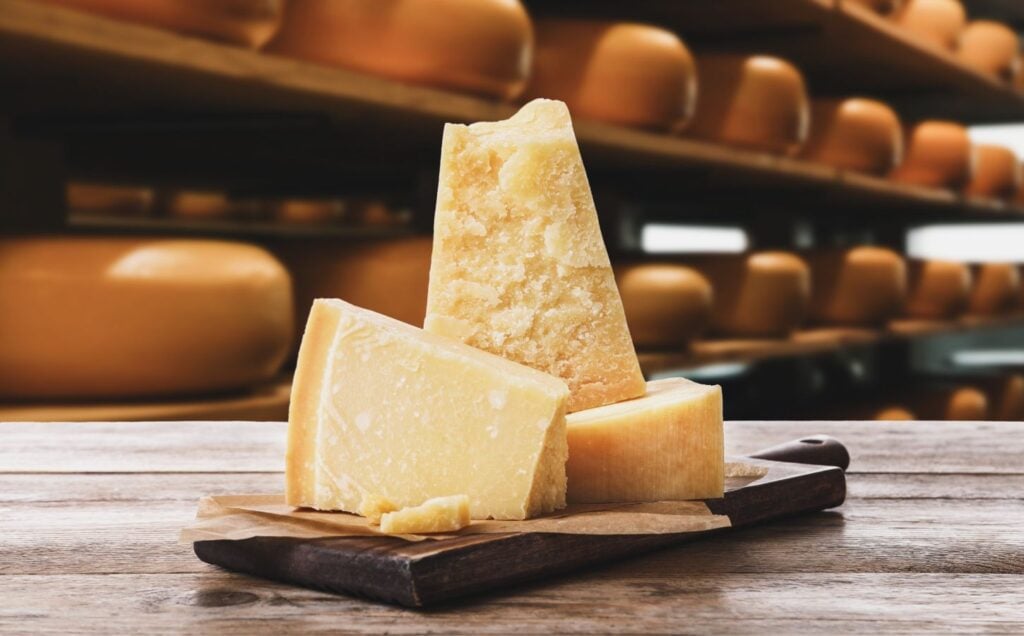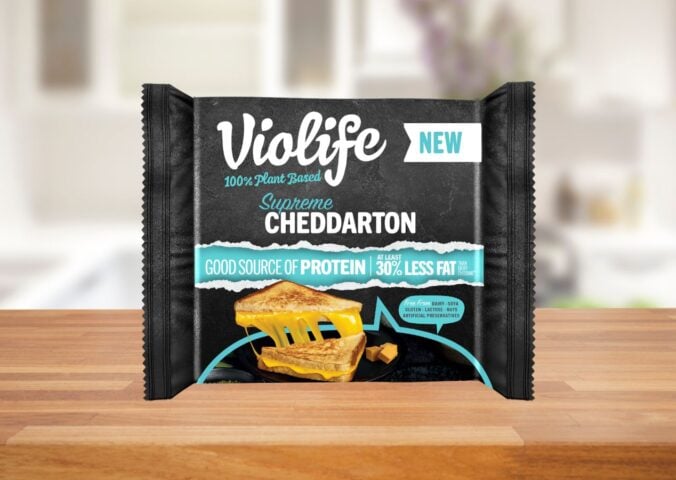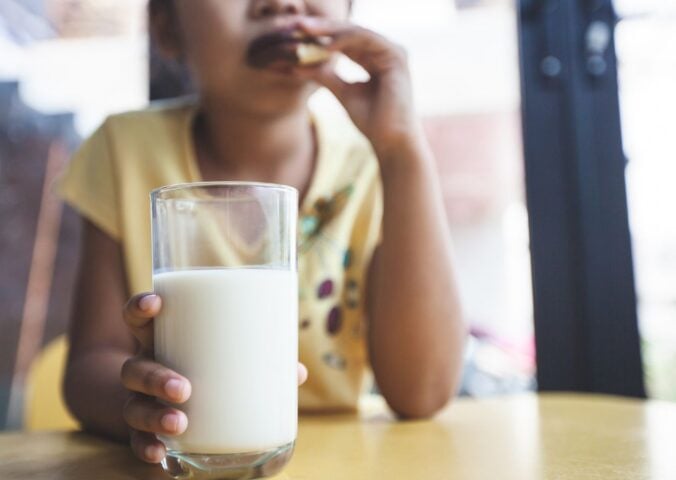Twitter users have taken to the platform to reveal their disgust at how Parmesan cheese is made. The crux of their upset appears to be the use of rennet, an ingredient taken from young animals’ stomach linings.
Parmesan is not the only cheese to still use rennet in its production. Due to its popularity, however, it is the variety that has opened the eyes of a number of consumers this year. Some reported being so shocked that they have accepted veganism as their only course of action.
“Today years old when I found out Parmesan cheese is made from baby cow’s stomach & I could go cry,” Tweeted @dtheebae. “I’m just gonna have to go full vegan at this point.”
Fellow Twitter users agreed, saying they never want to eat cheese again. Another replied that they are confused about why humans are eating any baby animals.
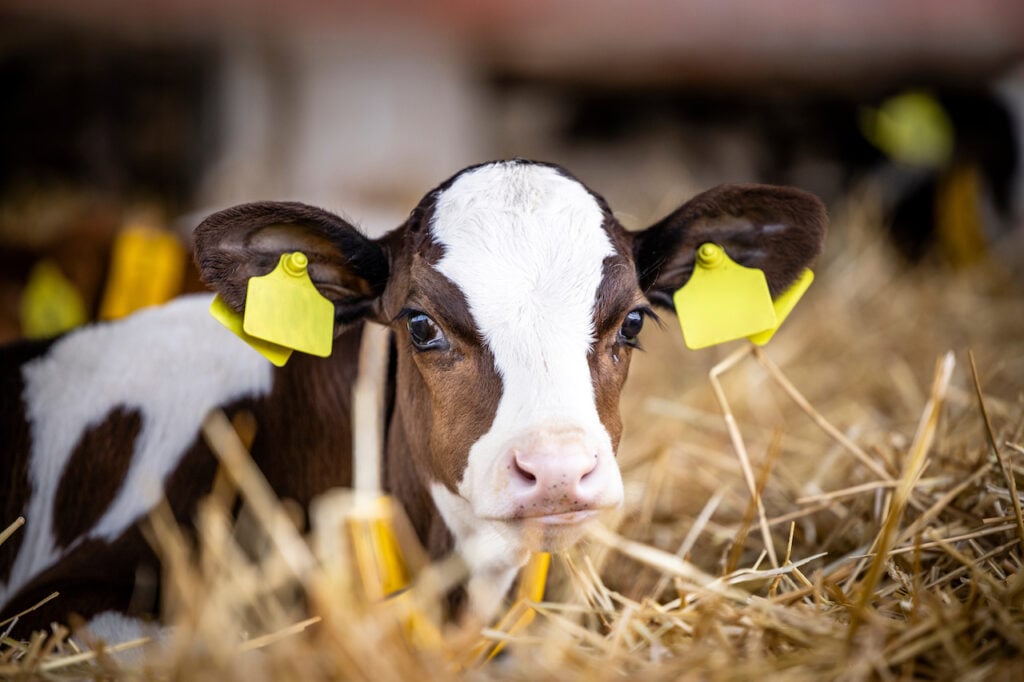
The truth about rennet in cheese
A key ingredient in traditional cheesemaking, rennet is a set of enzymes that come from rennin, which is made in the stomachs of ruminant animals (hoofed herbivorous mammals). It is mainly found in the fourth stomach lining of young and unweaned baby animals, including calves, goat kids, and lambs.
Animals being unweaned is critical to rennet collection. When babies are consuming a diet of mostly milk, their enzyme levels remain high. As soon as they begin to supplement with large amounts of grass, they stop producing rennin.
Once collected, rennet enzymes are added to milk – commonly in liquid or paste form – to separate the solids and water to create cheese curds.
Rennet extraction is where another facet of animal dairy cruelty comes into sharp focus. While rennet is considered a by-product, its production does require an animal to be killed. As such, young animals being killed for meat – such as veal – may have their stomachs removed.
From here the process varies according to geography, but stomachs are commonly dried or frozen before being cut into strips or milled, then used in the cheesemaking process.
The cheese industry remains adamant that rennet is not inhumane and that it prevents part of an animal’s body from going to waste during meat production.
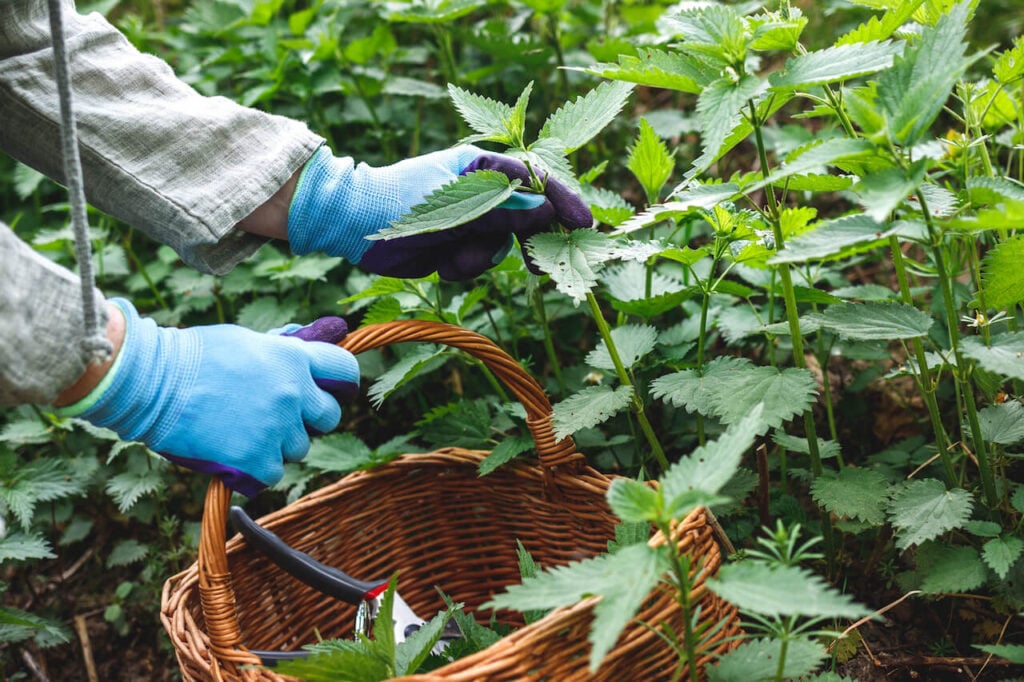
Is there a plant-based alternative?
Animal-free rennet not only exists, but is also already common in commercial cheese-making.
Rennets can be made from specific varieties of plants including nettles and thistles. They are soaked in water to release an enzyme similar to rennin that will thicken milk.
Alongside plant rennet, microbial alternatives exist. These see certain strains of mold producing rennin-like enzymes, which can be extracted and used. They can also be genetically modified by being placed inside yeast cultures.
The US Food and Drug Administration and food labeling laws in the UK do not currently require cheesemakers to specify which kind of rennet has been used during the manufacturing process.
However, brands that use vegetarian rennet – such as Cathedral City in the UK – usually choose to identify their choices. Conversely, animal rennet is often covertly referred to as “traditional rennet.”
